Education
15 Questions With Lina Ashar & Dr. Swati Popat Vats on Preschool eLearning
Ms. Lina Ashar and Dr. Swati Popat Vats were the guests on a Webinar hosted by ScooNews regarding eLearning for preschoolers.
Published
5 years agoon
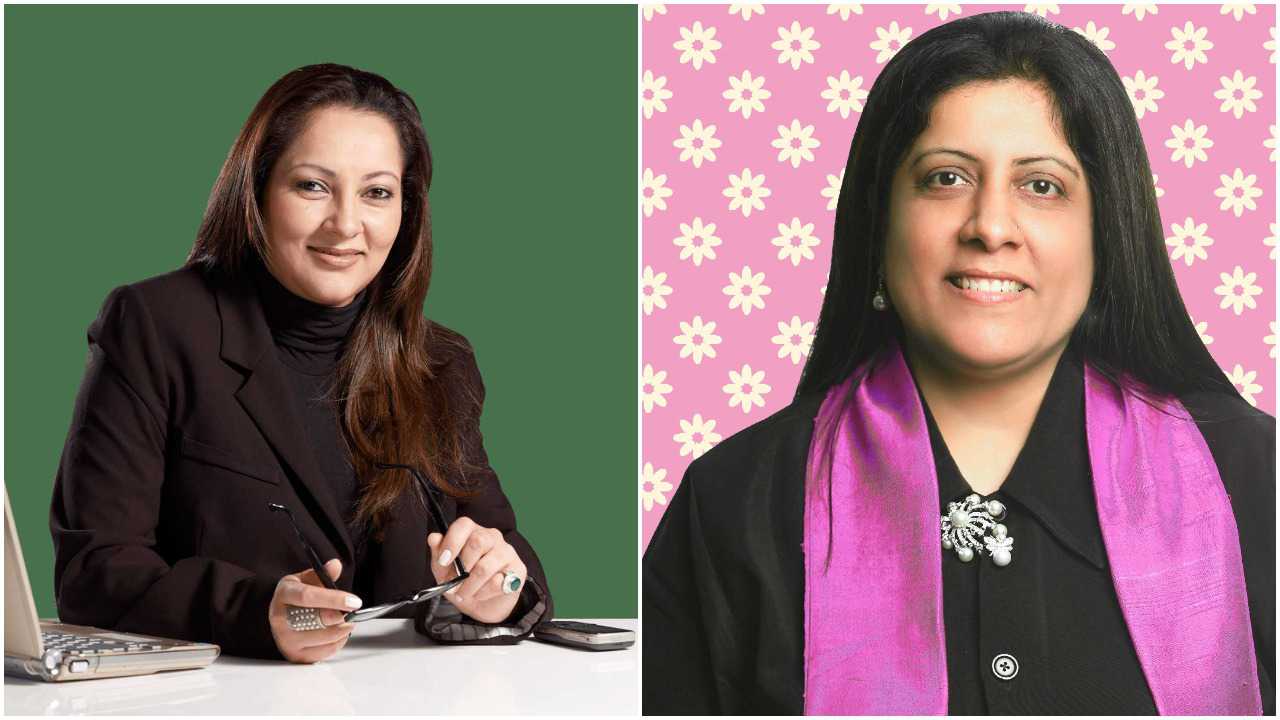
On 7th April 2020, a webinar was hosted by ScooNews in the wake of the COVID-19 lockdown and its impact on education, more specifically to address the effect it has on Early Childhood Education. We invited speakers Dr. Swati Popat Vats and Lina Ashar to discuss with us the issues faced by the pre-primary education system currently and the ways in which home-learning can be implemented to keep things smoother for the educators and the child in concern. The webinar was attended by more than 30,000 educationists from across India on Zoom, Facebook Live and YouTube Live.
Lina Ashar is an Indian Educationist, Entrepreneur, Writer, Founder of Kangaroo Kids International Preschool and Billabong International School.

Dr.Swati Popat Vats is the Founder/President of Early Childhood Association India, President Association Primary Education and Research, President Podar Education Network, Founder/Director Podar Jumbo Kids, National Representative World Forum Foundation, and Nursery Director Little Wonders UAE.
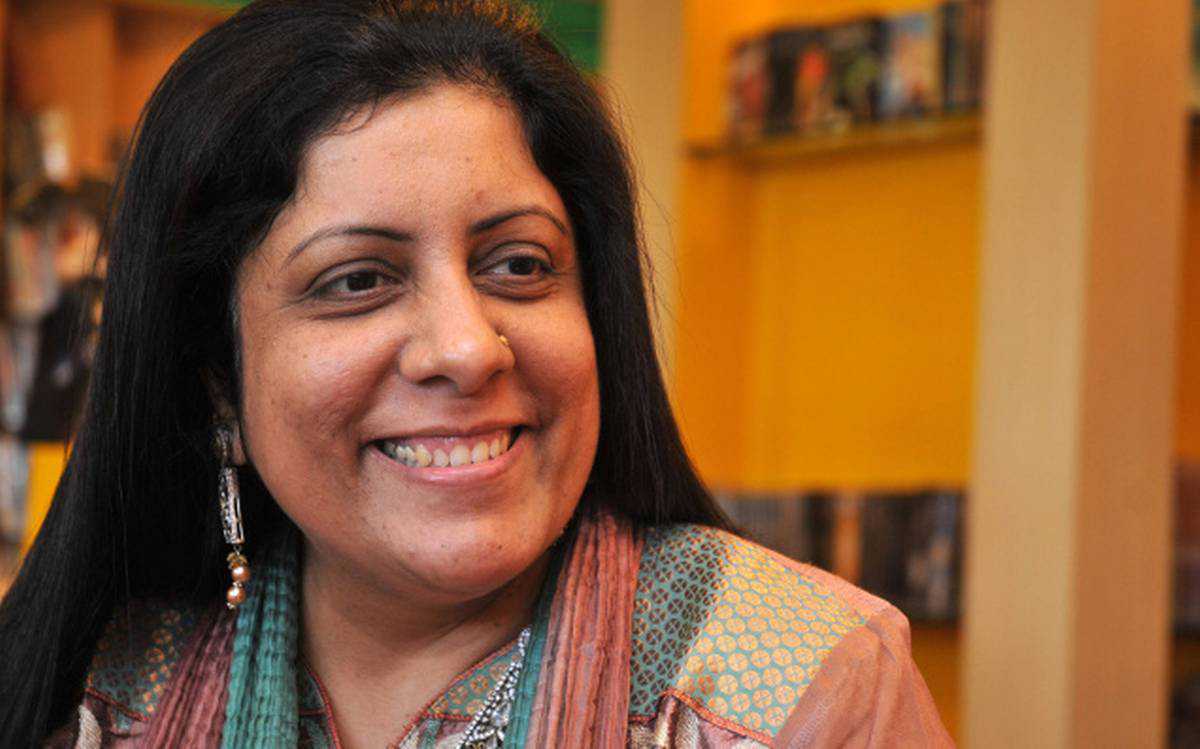
In the opening statement, Ms. Ashar talked about how technology is important and a necessity in the present and however much one is uncomfortable with the change it brings to the authentic teaching style, it is a requisite. We could either fear or take a leap forward toward this development. According to her, these are the times for collaboration and not competition.
On the other hand, Dr. Vats said she has a new meaning of IQ (intelligence quotient), where EQ+CQ +TQ+PQ = IQ.
She explained it by using the Early Childhood Care & Education or ECCE abbreviation and giving it a different meaning. EQ would stand for Emotional Quotient; CQ for Communicating/Change Quotient; TQ for Thinking Quotient and PQ for Play Quotient of the child. And together, these critical aspects form the IQ. Dr.Vats also added that though change is inconvenient, it is required of us to accept it in order to move forward.
Moving on to discussing some fairly important issues surrounding pre-school education, home-based learning, and helping the child focus on studies during the school closure, the two experts cleared the doubts popped by the educators listening to them Live. Excerpts below:
1. Simple ways to begin teaching online to the preschoolers for the first-time
Ms. Ashar:
- Give a very simple framework of what happens through the day
- Children need to feel connected
- Advise parents on how to reach a child’s emotional health
- Do not try to bring school at home rather it is home-based learning for the kids where the ideas are from school or educator
- Use Zoom, kids get excited when they come together
- The teacher goes through a period of interaction.
- Kids ask questions
2. On the study material required for the child each day
Dr. Vats:
- Do not overload kids with home-work. It must be formulated according to their age and capacity.
- Pre-school/nursery can try avoiding sending work. Instead, choose to send fun activities.
- For junior/senior classes, 1 worksheet a day is good enough
- Send more life skill-based activities like home chores, gardening, etc.
- It is more important to develop their language, motor, comprehension and cognitive skills than academic at this point
3. How to make online classes of pre-primary children interesting
Dr. Vats:
- Go to Facebook Live with all the students joining with their parents
- Have singing/rhyme sessions that they know
- Take simple storytelling session
- Once comfortable with the technical aspect, you could move on to apps like Zoom, Google Hangouts, etc.
- Once you list them the activities to do, discuss with them the next day so they know they have your attention
- Do not forget to tell them you miss them and to stay safe
4. How to discipline children online
Ms. Ashar:
- Do not take life so seriously right now
- Approach everything with love
- Do not tell kids they are wrong
- Form a sense of connection when you come online
- Emotional connection is more important than any content you could teach
5. On helping specially-abled children concentrate
Dr. Vats:
- Remember concentration cannot be forced on any child
- It comes with attachment and engagement
- Understanding the child is important, it helps in setting the tuning between you and the child
Ms. Ashar:
- One-on-one classes with special-needs children are better than teaching them with a group of kids
- It’s been found that children focus more digitally than when in a classroom
6. On securing more admissions after the lockdown is over
Ms. Ashar:
- Be empathetic of the circumstances
- Follow-up calls may not be well accepted as parents are busy with multiple things these days, especially with their work from home.
- Tell them it’s about contribution and collaboration and not capitalism
- Send them inspirational activities to do with kids at home to stay connected
Dr. Vats:
- This is not the time to push anyone for admissions or fees, take it slow
- More important point is to connect with the families of your students
- See a larger picture as educators which is – how to impact those already enrolled
- Your focus should be on making a larger impact by your sincere efforts
- If done properly, parents will see the difference and would want to join you in the future
7. On making digital classroom fun and creative for the preschoolers
Ms. Ashar:
- Some days you can have dance classes, exercise session, or even a no-fire cooking class with them
- Explore platforms like YouTube to see how educationists worldwide are reaching out to their students through creative activities
Dr. Vats:
- Yoga is one of the best things that adults, as well as children, can practice, try it
- ECA’s dance and exercise groups: FolkFitness & Swara Evening Sessions, become a member of these WhatsApp groups
8. On managing the screen-time and dealing with its dependency after the traditional classrooms will reinstate
Ms. Ashar:
- The key is to use technology in a way that it empowers as an educator, parent, and student
- It is our duty to show kids to use technology in the right way and not be dependent on it by equally focusing on other off-screen physical activities
Dr. Vats:
- Schools should add technology/digital literacy to the curriculum
- Do’s and Don'ts of usage of technology should be taught to children from a young age
- Do watch a video by BBC on Positive Impact of Screentime
9. On the right time to conduct online learning classes
Dr. Vats:
- When the child has slept well and had a full stomach and isn't cranky
- Be flexible
- Keep recorded sessions for children to watch later
- Take your call with the best judgement
Ms. Ashar:
- Do not make them come online as early as the school timings
- One can start at 11 am so the kids are fresh and can focus better
10. On ensuring if the parents are doing their best in home-schooling
Dr. Vats:
- Parent involvement is a must since it is ‘homeschooling’
- But regardless of that, we must understand how overwhelming this all could be for them
- Do not make them overwork
- Assure them that anything done now during this lockdown period will be visited again by the teachers when the schools reopen
- Flexibility is the mantra
11. Assigning homework-based learning
Dr. Vats:
- Please do not give ‘homework’ while homeschooling
- Quality learning of preschoolers is more important
Ms. Ashar:
- Prioritize the child’s emotional and mental health than his/her academics right now
- To help children stay emotionally stable, it is important for educators and parents to be emotionally stable themselves. Help them achieve that state.
- Be flexible
- Learning the impact of children doing chores is more important
12. On maintaining the classroom environment for teachers while taking online classes
Dr Vats:
- Print out quotes and pictures in your backgrounds
- Use different backgrounds to have a change of scene
- Bring some diversity in the way the children see you
- Remind them of the happy times and memories of their school/classroom
Ms. Ashar:
- It is important for kids to realise how real you are
- Showing them your home, your smiling face will make a lot of difference
13. Addressing internet connectivity difficulties
Ms. Ashar:
- If there is a bandwidth issue, you could record sessions and send
- We have sent out instructional designs at Kangaroo Kids about an app that allows readers to check out the MI-based activities
- Allow kids to play with the learning app when the internet is not working properly or the parents are busy
- Priorly secure the links to the videos or powerpoints that you need as resources
Dr. Vats:
- At Podar Jumbo Kids, a mix of live sessions and links were already sent to the teachers
- Everything is uploaded on the portal that connects us with the parents
- Be ready with your Plan B in case the internet doesn’t work or the teacher in command is not available
14. Suggestions on the online courses/books/articles for teachers to go through
Ms. Ashar:
- It is important to take time to brush up your skills as educators and also recognize your personal interests
- There are a lot of online courses available and due to the lockdown, a majority of them have been rendered free of charge
Dr. Vats:
- Subscribe to educational magazines like ScooNews, they come up with excellent articles
- I also write frequently for Education World and BrainFeed Magazine, check them out sometime
- Books like Totto-Chan are available for no-charge these days, read them
- Divasvapna by Gijubhai is one of the must-reads for all teachers
- Early Childhood Association have online courses available to enhance your knowledge in the field
- Podar International is also starting 2 courses, Nature Kindergarten & A Leadership Program. Join them!
15. On developing the connection with the Nursery kids if they have never seen the teacher before
Ms. Ashar:
- It is actually the perfect time to connect with them one-to-one
- Kids are feeling more at ease and hence, the connection will happen rather quickly and effortlessly
- Since the child does not have to settle in a new environment and have no separation anxiety, making them comfortable with the educator's face right now is a good idea
Dr. Vats:
- It is a transition of the child from parents to teachers
- Send something for parents to tell their kids about the educator
- Basic information with a few personal touches like a favourite colour or flower can truly help
- Parents can help introduce the educators with the child and explain to the child how the school will come to home via the online screen
At the end of the session, both the pioneering educationists shared a word of motivation for the thousands of educators listening to them.
Ms. Ashar:
- If you want to touch the past, touch a rock. If you want to touch the present, touch a flower. But if you want to touch and impact the future of the world, connect with a child.
Dr. Vats:
- When I see teachers struggling, I tell them the story of Thomas The Engine
- There is a phrase that says “I can, I can, I can.” Keep it close to your heart.
- Childhood stories are a great source of inspiration. Some of my favourites are Snoopy, Garfield, Winnie The Pooh
- It is important to learn the art of self-motivation
If you could not catch our webinar Live, find the recorded feed on our Facebook page here https://www.facebook.com/scoonews/videos/601918420667127/
For those who want to join the Watsapp groups mentioned, it is suggested to go on Early Childhood Association India website and click on ‘Contact Us’ to ask your queries.
You may like
-


Are 4-Year Degrees Dead? Nikhil Kamath and the WEF Say Lifelong Learning Is Here to Stay
-
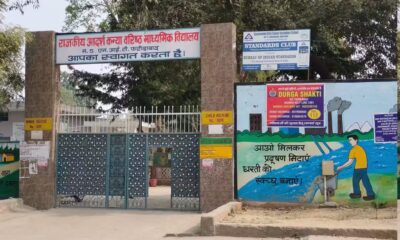

Four Indian Schools Shine on the Global Stage at World’s Best School Prizes 2024
-
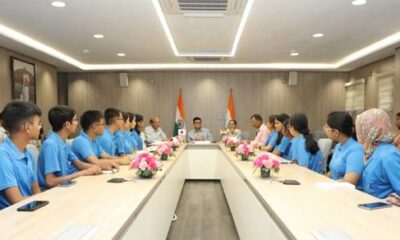

India Sends 20 Students to Japan Under Sakura Science Programme 2025
-


Delhi Schools to Observe June as Anti-Malaria Month, Says DoE
-
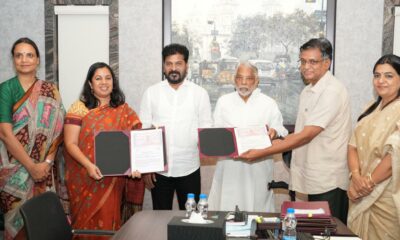

Telangana Govt Ties Up With 6 NGOs to Revolutionise Teaching in Govt Schools
-


History, Identity, and Pride: Books That Make Sense of Being You
-
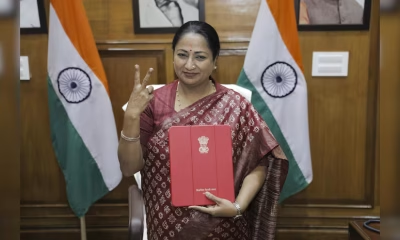

Delhi Government Clears Ordinance to Regulate Private School Fees After Protests
-
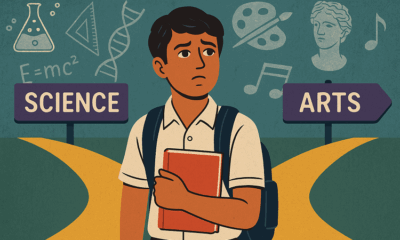

Of Formulas and Frames: Why India Must Stop Dividing Science and Art
-


43-Day Hunger Strike Ends as Govt Backs Teachers’ Demands
-
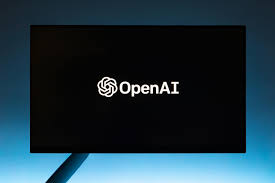

OpenAI Academy Launches in India to Democratise AI Education for Students, Teachers, and Startups
Education
Indian Astronaut Shubhanshu Shukla to Connect with School Students Live from Space
Published
20 hours agoon
July 1, 2025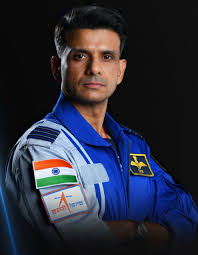
Indian astronaut Shubhanshu Shukla, currently on a 14-day scientific expedition aboard the International Space Station (ISS) as part of the Axiom-4 mission, is scheduled to interact with school students and ISRO engineers on July 4.
The communication will take place via ham radio, through a telebridge set up at the U R Rao Satellite Centre (URSC) in Bengaluru. The session is facilitated by the Amateur Radio on the International Space Station (ARISS) programme, which enables students to engage with astronauts in orbit.
The interaction is scheduled for 3:47 PM IST and will offer participating students an opportunity to ask questions directly to Shukla, who is joined on the mission by three other astronauts.
Shukla has been conducting various scientific experiments during his stay aboard the ISS. These include deploying and imaging space microalgae samples, which are being studied as a potential food source for long-duration missions. He has also participated in the Neuro Motion VR project — involving brain activity tracking through VR tasks in microgravity — and contributed to the Telemetric Health AI study, which uses biometric data and analytics to study cardiovascular and balance changes during spaceflight.
The Axiom-4 mission, organized by Axiom Space, focuses on scientific research in space with potential applications in both space exploration and Earth-based health systems.
Education
UGC Cracks Down on 89 Institutes Over Anti-Ragging Failures
Published
2 days agoon
June 30, 2025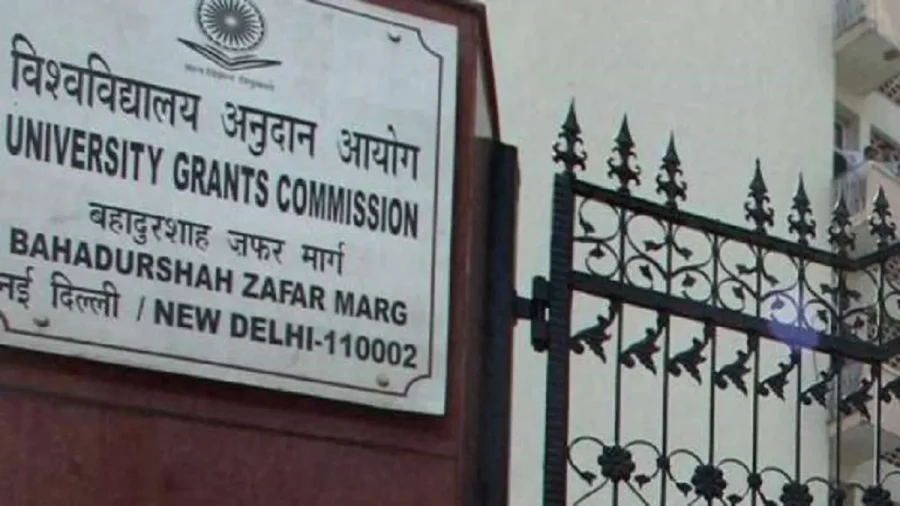
In a firm push for accountability, the University Grants Commission (UGC) has issued show-cause notices to 89 higher education institutions for failing to comply with mandatory anti-ragging regulations. The defaulters include some of India’s most prestigious institutions—17 of which are Institutes of National Importance—including IIT Bombay, IIT Kharagpur, IIT Hyderabad, and IIM Bangalore.
These institutions, despite repeated advisories, failed to submit the required anti-ragging undertakings from students and institutional compliance reports. The lapses have been termed a “significant violation of regulatory norms” by the UGC, raising serious concerns over student safety and campus climate in India’s top educational spaces.
A notice dated June 9, signed by UGC Secretary Prof. Manish R Joshi, has directed all 89 institutions to respond within 30 days by submitting comprehensive compliance reports, securing online anti-ragging affidavits from all students, and detailing both current and planned anti-ragging mechanisms.
If the institutions fail to act within the deadline, consequences may include withdrawal of UGC grants, public disclosure of non-compliance status, and potential derecognition or withdrawal of affiliation.
Among the list of defaulters are the Indian Statistical Institute, Kolkata, AIIMS Raebareli, Aligarh Muslim University, RGIPT Basar, and several National Institutes of Design. The issue becomes even more urgent in light of recent ragging-related incidents and an increasing perception of campus hostility. “Institutions must treat this as a matter of utmost urgency. Your prompt compliance will be essential in upholding institutional responsibility towards student welfare,” reads the UGC’s statement.
Ragging has no place in modern education, especially not in a country positioning itself as a global knowledge leader.
In 2025, with India’s education sector expanding in reach, recognition, and responsibility, compliance with anti-ragging norms shouldn’t require reminders. It should be a given.
As the world watches Indian institutions climb global rankings, student safety and well-being must remain central, not as compliance checkboxes, but as part of the educational culture we aspire to build.
Education
Government Doubles Down on Coaching Centres: New Panel Signals Stronger Regulation Ahead
Published
6 days agoon
June 26, 2025
In a decisive step toward reforming India’s fragmented senior secondary education system, the Ministry of Education has constituted an 11-member high-level committee to address the mushrooming of dummy schools and the unchecked influence of coaching centres. Chaired by Higher Education Secretary Vineet Joshi, the committee includes representatives from CBSE, NCERT, and faculty from IITs in Madras, Kanpur, and Trichy.
The move is seen as part of a growing policy consensus across central and state governments to reclaim the authority of schools, following recent crackdowns and reforms aimed at regulating coaching institutions and curbing the dummy school culture that sidelines holistic education.
Dummy schools — where students are officially enrolled but rarely attend — have emerged as a by-product of India’s competitive entrance exam culture. These institutions prioritise JEE, NEET, and CUET preparation through coaching classes, while students disengage from formal schooling. The CBSE’s March 2025 advisory warning that students from dummy schools could be barred from board exams marked a serious turning point in policy enforcement.
Earlier this year, the Delhi Government carried out inspections in over 600 private schools, issuing notices to at least 10 for running dummy setups. The move followed media reports and parental complaints about students being denied regular schooling in favour of coaching arrangements.
Meanwhile, the Rajasthan Cabinet approved a bill in April 2025 to regulate coaching centres operating in Kota and other education hubs. The legislation aims to curb exploitative practices, mandate mental health counsellors, and prevent coaching centres from operating without a minimum infrastructure standard—prompted by rising student suicides in the state.
Central Framework and Industry Oversight
In February 2025, the Central Government announced a new framework for coaching centres, proposing registration, transparency in fee structures, and guidelines on advertising to prevent misleading claims. Together with the current committee’s formation, these reforms indicate a systematic tightening of oversight at all levels.
The new panel’s mandate is broad. It will investigate:
- The socio-academic reasons behind the rise of dummy schools
- The misalignment between school curricula and competitive exams
- The impact of coaching on student well-being and critical thinking
- The need to promote alternate career pathways beyond engineering and medicine
- Regulations around coaching advertisements and contract practices
A National Rethink on the Purpose of Schooling
Education experts like Dr Ameeta Mulla Wattal have welcomed the initiative, calling it “a vital opportunity to restore the sanctity of school education.” The rise of coaching centres as parallel systems, she noted, has come at the cost of creativity, values, and even mental health in adolescents.
As India contemplates the future of its learners, the Ministry’s recent actions suggest a serious intent to bridge the gap between boardrooms and classrooms. Whether the new committee’s recommendations lead to tangible change remains to be seen, but the signals are clear: education in India must prepare children for life, not just for an entrance exam.
Education
CBSE To Conduct Board Exams Twice for Class 10 from 2026
Published
6 days agoon
June 26, 2025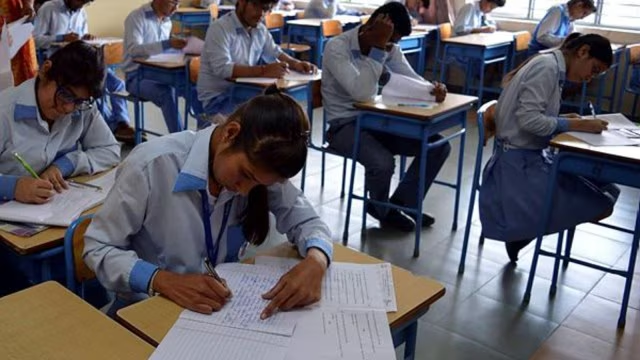
In a move aimed at reducing academic pressure and offering students a second shot within the same academic year, the Central Board of Secondary Education (CBSE) has announced a revised board examination structure for Class 10. Starting from the 2025–26 session, students will appear for two board exams: the first in February and the second in May.
While the February exam will be the ‘main’ board, students who wish to improve their scores in up to three subjects can take the second board exam. Those who fail in one or two subjects may also attempt the May exam under the compartment category. However, those who miss three or more subjects will be marked ‘Essential Repeat’ and have to retake the exam the following year.
Importantly, this is not a semester system. Students must appear for the first exam. The second is optional—meant only for improvement or compartment cases. No additional or new subjects can be added between the two exams.
CBSE has clarified that the structure, syllabus, and pattern of questions will remain unchanged. The results of the first exam will be declared in April, enabling provisional Class 11 admissions. However, the final marksheets and certificates will be issued only after the second exam results are announced in June.
This dual-exam model was opened for public feedback earlier this year and will initially apply only to Class 10. A similar system for Class 12 is being considered but has not yet been confirmed.
For schools, this change will require rethinking academic calendars, counselling processes, and internal assessments, especially for students who may be at risk of needing a second attempt. The move aligns with CBSE’s broader goals of offering students more flexibility and reducing the high stakes of a single board exam.
Education
How to Win Back Wandering Minds: Post-Summer Edition
Published
1 week agoon
June 24, 2025By
Renu Sharma
The dopamine-rich scrolling in late mornings with amorphous freedom has made our zealous students so comfortable that they are re-entering their classrooms with minds tuned to instant gratification, not delayed rewards. Now the challenge isn’t just academics but to re-engage our bud’s attention and curiosity. Neuroscience backed motivation strategies and intentional school design could prove to be a catalyst as it will bring a positive change and enable the students to learn at a better pace.
1. Rewiring the Dopamine rush with 2 Ps, Purpose and Productivity:
Neuroscience says: Where our brains are functional to seek novelty and purpose on their own, during summer break, the buds often lean into adding the activities to their routine which are unpredictable, quick, and rewarding referring back to instant gratification, these activities may include social media, gaming, and chatting anonymously and grateful to internet and inventions, there are plethora of platforms enabling students to be distracted. And then joining back the school with a gradual drip of delayed academic rewards may seem to be a let-down for students.
Actionable tip: We as facilitators have to be the mystery-solvers channeling their energy into productivity, enlightening them with real-world challenges, interdisciplinary projects, or a mystery to solve that taps into their intrinsic curiosity. Novelty may allow us to reset their attention-even primitive changes in surrounding like rearranged desks, learning outdoors, and using the BALA method to utilize infrastructure, can signal a shift in engagement and productivity.
2. Design for Autonomy and Flow
Neuroscience says:
Neuroscience tells us that motivation really flourishes when students feel they have some control over their learning. The brain’s reward system kicks in when choices are part of the equation, especially regarding how tasks are structured or what content is covered.
Here’s a practical tip: give students structured choices, like deciding which book to dive into, which problem to tackle first, or how they want to present their findings. A design that promotes flow—complete with clear goals, manageable challenges, and instant feedback—helps keep students in that ideal zone, avoiding both boredom and anxiety.
3. Rebuild Social Motivation Through Spaces That Connect
Neuroscience tells us that connecting with peers is a huge motivator, especially after the pandemic. Our brains are wired for social interaction, which plays a key role in how we learn and engage emotionally.
Actionable tip: Create flexible seating arrangements or common areas that encourage group work and casual collaboration. Try incorporating daily activities like “curiosity circles” or peer-led problem-solving sessions to foster a sense of belonging and shared learning objectives.
4. Leverage Routines to Rewire Attention
Neuroscience shows that our habits influence our attention. After a summer of scattered focus, students thrive on rhythmic and consistent routines that help retrain their executive functions.
Actionable tip: Kick off classes with familiar “mind-on” rituals — whether it’s a thought-provoking question, a brief reflection, or a quiet sketch — to help anchor their attention. Consistency breeds comfort, and that comfort boosts confidence.
5. Make Joy a Design Priority
Neuroscience indicates that positive emotions can enhance learning by boosting neuroplasticity. When students (and teachers) experience joy, they’re more likely to engage deeply and retain what they learn.
Actionable tip: Infuse joyful moments into the day — through fun challenges, movement breaks, or a bit of humor. Allow time for students to share what excites them. A joyful classroom isn’t just a nicer place to be; it’s also more effective for learning.
Conclusion: To capture wandering minds, we need to understand how motivation truly works and design both our curriculum and learning spaces to support it. When we ignite curiosity, honor autonomy, and weave joy into the experience, even the sleepiest summer brain can come alive again.
This article is written by:

Renu Sharma
Assistant Director – Systems – Indirapuram Group of Schools
Principal – Indirapuram Public School – Crossings Republik
Education
Tripura Becomes Third Indian State to Achieve Full Literacy
Published
1 week agoon
June 24, 2025
Tripura has been declared a fully literate state, becoming the third in the country to cross the 95% literacy threshold after Goa and Mizoram.
The announcement was made by Chief Minister Dr. Manik Saha, citing data from the Understanding Lifelong Learning for All in Society (ULLAS) programme — a flagship literacy and life skills initiative aligned with the National Education Policy (NEP) 2020. The declaration marks not just an administrative achievement, but a generational leap in educational access and community participation.
Tripura’s current literacy rate stands at 95.6%, as per the latest Periodic Labour Force Survey, a remarkable rise from 87.22% in the 2011 Census, and a far cry from 20.24% in 1961.
“This is a historic moment for Tripura. From a 20% literacy rate six decades ago to 95.6% today, we have rewritten our narrative,” said Dr. Saha in a public post. “Through the successful implementation of ULLAS, we have ensured that literacy is not limited to signing one’s name, but includes the confidence to participate meaningfully in society.”
ULLAS, launched under the New India Literacy Programme, targets adult learners aged 15 and above who have missed out on formal schooling. It goes beyond basic literacy to include numeracy, digital and financial literacy, legal awareness, and other essential life skills — all aligned with NEP 2020’s commitment to equitable lifelong learning.
The shift from traditional signature-based literacy drives to functional literacy has allowed Tripura to reach new learners with practical, future-ready tools. The model also offers a compelling template for other states striving to raise literacy rates beyond conventional benchmarks.
Education
Assam Brings Sign Language to Senior Secondary Classrooms in Landmark Move
Published
1 week agoon
June 24, 2025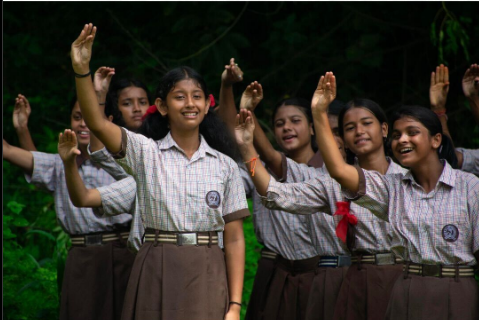
The Assam State School Education Board (ASSEB) has announced the introduction of Sign Language as an elective subject for Higher Secondary (Classes XI–XII) from the current academic year.
Education Minister Dr. Ranoj Pegu made the announcement during the inauguration of a residential AI training programme for teachers at IIT Guwahati. While Artificial Intelligence and Financial Literacy were also introduced as new electives, Sign Language stood out as a critical stride towards making classrooms more accessible to the deaf and hard-of-hearing community.
“This is not just about a subject; it’s about acknowledging communication rights,” said Dr. Pegu, who also unveiled a specially designed AI textbook at the event. The textbook was developed in collaboration with experts from IIT Guwahati and Dibrugarh University. He added that the curriculum reforms are aligned with the National Education Policy (NEP) 2020’s vision of equity, inclusion, and skill readiness.
According to education officials, the rollout of Sign Language will begin in institutions where qualified educators or resource personnel are available. Training for teachers is expected to be scaled up across the coming months. The subject aims to raise awareness about Indian Sign Language (ISL), improve communication access for students with hearing impairments, and sensitise peers to inclusive practices from a young age.
Later in the day, Dr. Pegu chaired a review meeting with officials from the Department of School Education to discuss budget allocations and planning for the 2025–26 academic year. While schemes like the Chief Minister’s Nijut Moina initiative, distribution of bicycles for Class IX girls, and the upgradation of Bodo-medium schools were discussed, the emphasis remained on delivering structural reforms that bridge equity gaps in access and opportunity.
The addition of Sign Language, AI, and Financial Literacy as electives reflects a broader shift in how Assam is reimagining school education — one where life skills, digital literacy, and inclusive values are no longer optional, but integral.
Education
Delhi Schools to Implement Age 6 Rule for Class 1 Admissions from 2026
Published
1 week agoon
June 23, 2025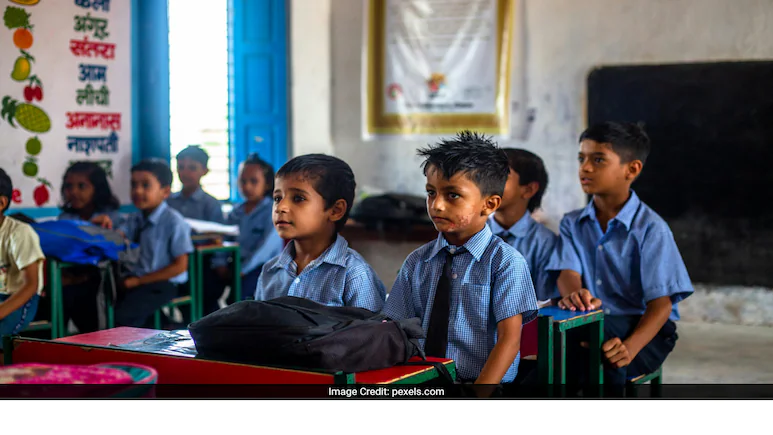
In line with the National Education Policy (NEP) 2020 and the Right to Education Act (RTE) 2009, the Directorate of Education (DoE), Government of NCT of Delhi, has issued a directive mandating that children must be 6 years old to gain admission into Class 1 starting from the academic session 2026–27.
This move aligns Delhi’s education system with the restructured 5+3+3+4 school framework introduced in the NEP 2020. Under the revised structure, the foundational stage will now include three years of pre-primary education before Class 1: Nursery (Bal Vatika/Preschool 1) at age 3, Lower KG (Preschool 2) at age 4, and Upper KG (Preschool 3) at age 5. Class 1 will be open to children only upon completion of 6 years of age.
All Heads of Government, Government-Aided, and Recognized Unaided Private Schools have been instructed to adopt this change beginning in the 2026–27 academic session.
By standardising entry age norms, the move aims to promote uniformity and developmentally appropriate learning, ensuring children enter Grade 1 equipped with foundational skills from three years of early childhood education.
Education
Tripura Adds Sex Education & HIV Awareness to Their Curriculum
Published
2 weeks agoon
June 20, 2025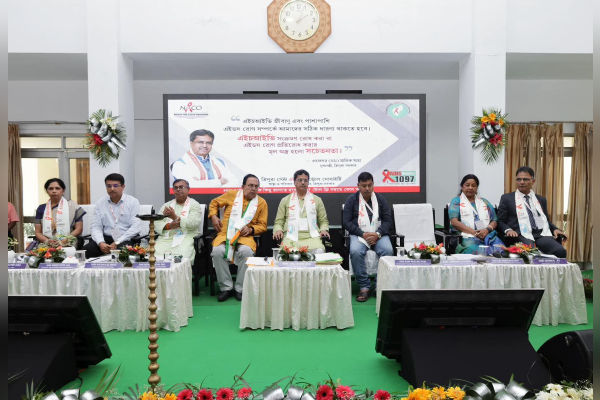
In a progressive step towards comprehensive health education, the Tripura government has announced plans to integrate sex education and HIV/AIDS awareness into its school curriculum, Chief Minister Manik Saha confirmed.
According to officials, the curriculum update aims to equip students with accurate knowledge about sexual health, disease prevention, and safe practices—key factors in curbing the prevalence of HIV/AIDS in the state. With around 5,000 active cases reported by late 2024, including a notable infection rate of 0.33% among adults and over 800 student cases, the move is seen as a timely measure.
The new content will be deployed through age-appropriate lessons, Red Ribbon Club activities, and sensitisation drives led by health and education officials. This initiative builds upon previous efforts, such as school- and college-level awareness programs, the involvement of key stakeholders, and information, education, and communication (IEC) campaigns across rural and urban centers.
Chief Minister Saha emphasised the role of educators and community leaders in delivering accurate information and fostering a supportive environment: “Students from school to college level should be made aware of the dangers of this disease,” he remarked earlier.
The curriculum integration aligns with state-level action under the National AIDS Control Programme (NACP). It resonates with India’s broader public health mandate to move HIV/AIDS education from stigma to mainstream schooling. By addressing misconceptions and promoting prevention early, Tripura hopes to protect its youth and reduce dropout rates among vulnerable groups.
Education
Four Indian Schools Shine on the Global Stage at World’s Best School Prizes 2024
Published
2 weeks agoon
June 20, 2025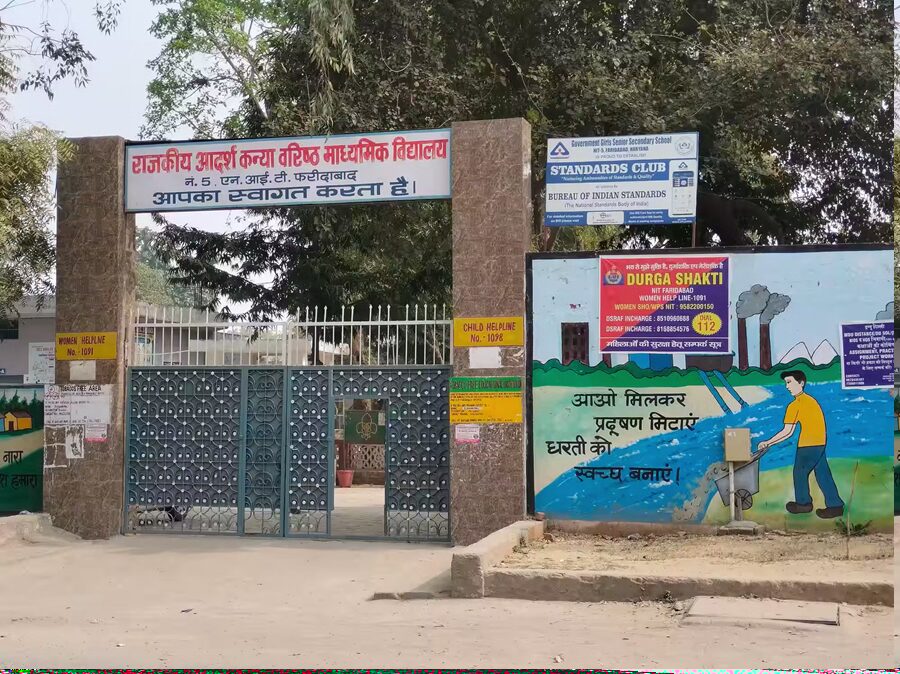
In a proud moment for Indian education, four schools from across the country have been named among the top 10 global finalists in the prestigious World’s Best School Prizes 2024, organised by UK-based T4 Education. These awards honour schools that are pushing the boundaries of innovation, inclusion, and community impact — and this year, India has made its presence felt in four out of five categories.
A Snapshot of India’s Global Finalists
From government to private, rural to urban — the diversity of India’s representation this year is striking.
-
Government Girls Senior Secondary School, NIT 5, Faridabad (Haryana) – Supporting Healthy Lives
A government-run school is redefining what public education can achieve. By interweaving nutrition, mental health, and physical well-being into its core ethos, the school is transforming the lives of at-risk girls, ensuring that no student is left behind. -
Ekya School, JP Nagar, Bengaluru (Karnataka) – Innovation
Recognised for reimagining learning through a design-thinking framework, Ekya encourages student agency, interdisciplinary inquiry, and real-world problem-solving — a blueprint for future-ready schooling. -
ZP School, Jalindar Nagar, near Pune (Maharashtra) – Community Collaboration
A rural government school that has placed local communities at the heart of education. By building trust and ownership at the grassroots, it has created a model of sustainable, community-driven transformation. -
Delhi Public School, Varanasi (Uttar Pradesh) – Environmental Action
Known for its strong environmental initiatives, DPS Varanasi’s students lead from the front — managing waste, conserving energy, and creating a campus-wide culture of sustainability.
These schools are now among 50 global finalists, selected from thousands of applications worldwide. The shortlist highlights institutions not merely chasing academic results but actively shaping well-being, equity, and systemic reform in education.
What Happens Next
All 50 finalist schools are now competing for the Community Choice Award, determined through an open global vote. Winners across each of the five main categories — Supporting Healthy Lives, Environmental Action, Innovation, Community Collaboration, and Overcoming Adversity — will be announced in October 2024.
The celebration will culminate at the World Schools Summit in Abu Dhabi in November, where global education leaders will convene for a high-impact dialogue on best practices and policy influence.
The Broader Picture
Launched in the wake of the COVID-19 pandemic, the World’s Best School Prizes have rapidly emerged as one of the most influential accolades in global education. Powered by T4 Education, a platform that connects over 200,000 educators worldwide, the awards are more than just recognition — they are a launchpad for schools to amplify their voice, scale impact, and drive systems-level change.
For India, the presence of four unique schools among global changemakers is both a celebration and a reminder — that bold ideas, no matter where they are born, can shape the future of learning.
Newsletter

Indian Astronaut Shubhanshu Shukla to Connect with School Students Live from Space

Are 4-Year Degrees Dead? Nikhil Kamath and the WEF Say Lifelong Learning Is Here to Stay

UGC Cracks Down on 89 Institutes Over Anti-Ragging Failures

Government Doubles Down on Coaching Centres: New Panel Signals Stronger Regulation Ahead

CBSE To Conduct Board Exams Twice for Class 10 from 2026

How to Win Back Wandering Minds: Post-Summer Edition
Tripura Becomes Third Indian State to Achieve Full Literacy

Assam Brings Sign Language to Senior Secondary Classrooms in Landmark Move

Delhi Schools to Implement Age 6 Rule for Class 1 Admissions from 2026

Tripura Adds Sex Education & HIV Awareness to Their Curriculum

Four Indian Schools Shine on the Global Stage at World’s Best School Prizes 2024

Centre Urges 7 States to Consider Common Board Amid Alarming Student Failure Rates

IIT Delhi Leads India in the QS Rankings 2026; MIT Tops Globally

Chandigarh, Punjab Lead in School Education Rankings; Meghalaya Trails Behind

Maharashtra Revises Policy on Third Language in Schools, Hindi No Longer Mandatory

From Academics to Empathy: Redefining Academic Success

India Sends 20 Students to Japan Under Sakura Science Programme 2025

Delhi Schools to Observe June as Anti-Malaria Month, Says DoE

Telangana Govt Ties Up With 6 NGOs to Revolutionise Teaching in Govt Schools

History, Identity, and Pride: Books That Make Sense of Being You

Delhi Government Clears Ordinance to Regulate Private School Fees After Protests

Of Formulas and Frames: Why India Must Stop Dividing Science and Art

43-Day Hunger Strike Ends as Govt Backs Teachers’ Demands

OpenAI Academy Launches in India to Democratise AI Education for Students, Teachers, and Startups

World Environment Day: Why Your School’s Environmental Education Needs a Cleanup

Is Your School Following These Mandatory CBSE Committees?

CBSE’s ‘Sugar Boards’ Initiative: Tackling the Sweet Crisis in Indian Schools

“Be the Change in a Changing World”: Anita Karwal and Anju Chazot Reflect on NEP 2020
CBSE Warns Dummy School Students May Be Barred from Board Exams

Maharashtra to Regulate Pre-Primary Education with New Law Aligned to NEP 2020

China Embarks on Ambitious AI-Driven Education Reform to Build a ‘Strong Education Nation’ by 2035

MAHAJYOTI’s Book Distribution Scheme to Empower 7,000 OBC Students Preparing for JEE/NEET & MHT-CET

John King’s Book ‘Teacher By Teacher’: A Global Tribute to the Transformative Power of Education

‘Baalpan ki Kavita’ Initiative Launched to Restore Indian Rhymes for Young Learners

Rewriting Ambedkar: Why Students Must Know the Man Beyond the Constitution

CBSE Introduces Mandatory Bridge Course for Classes 6 to 12 in Chhattisgarh Under NEP 2020

CBSE Mandates 50-Hour Annual Training for Teachers, Declares STEM as 2025 Theme

India Bids Farewell to NEP Architect Dr K. Kasturirangan

Pradhan Mantri Rashtriya Bal Puraskar 2025: Nominations Now Open for India’s Young Achievers

Banu Mushtaq’s International Booker Win Is a Wake-Up Call for Indian Schools to Reclaim Literature

NCERT Class 7 Textbooks Updated: Mughals Removed, Focus on Indian Ethos and Pilgrimage

Delhi Government Cracks Down on Dummy Schooling; Over 600 Schools Inspected, 10 Issued Notices

Delhi Approves Landmark Bill to Regulate School Fees Across 1,677 Institutions

The Ethics of AI Art in Education & Nostalgia: The Ghibli Effect

Operation Sindoor and Operation Abhyaas: Navigating School Safety and Student Well-being Amid Rising Tensions
CBSE Revises Class 10, 12 Curriculum: Biannual Exams, New Subjects and Flexible Passing Criteria Introduced

Harvard Stands Its Ground: Harvard Faces ₹18,400 Crore Funding Freeze After Rejecting Trump Administration’s Demands

CUET-UG 2025 Likely to be Postponed, Fresh Dates Expected Soon

Aalamaram 2025: Where Indian Educators Came Together to Grow, Reflect, and Lead

Trump Signs Executive Order to Promote AI Integration in U.S. K-12 Education
SGEF2023 | Special Address by Rama Datt, Trustee, Maharaja Sawai Man Singh II Trust, Jaipur

ScooNews | After Movie | ScooNews Global Educators Fest 2023

Aftermovie | NIES2 UP Chapter | 21 Jan 2023

WEBINAR | Gamification in Education: How Digital Badges Can Boost Student Motivation and Engagement

ScooNews | WEBINAR| Importance of Physical Activity for Children at School | Plaeto

SCOONEWS | WEBINAR | WHY DIGITIZING YOUR SCHOOL IS A MUST | TEACHMINT

Keynote Address | Lakshyaraj Singh Mewar

Anurag Tripathi, Secretary, CBSE at SGEF2022

How schools can nurture every student’s genius

Aftermovie | SGEF2022 | Jaipur

Li Andersson | Minister of Education | Finland

Anurag Tripathi, Secretary, Central Board of Secondary Education (CBSE) discusses NEP2020

ScooNews | Early Ed Asia 2019 | Aftermovie
#PodarECEconf : Pursuing quality ECE

#CBSE Class XII #Results #Highlights

The interesting story of India’s educational system | Adhitya Iyer

A young scientist’s quest for clean water

The Danger of Silence: Clint Smith

National Digital Library of India is an initiative by HRD Ministry

Remembering Kalpana Chawla on her birthday!

Message from Sadhguru for Students!
Message from Sadhguru for Students!

The Untapped Genius That Could Change Science for the Better

Eddy Zhong: How school makes kids less intelligent TEDxYouth@Beacon

#TEDxCanberra : What if every child had access to music education…
Trending
-
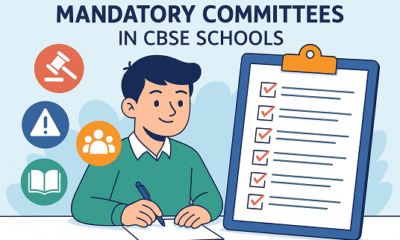
 Education3 months ago
Education3 months agoIs Your School Following These Mandatory CBSE Committees?
-

 Education1 month ago
Education1 month agoCBSE’s ‘Sugar Boards’ Initiative: Tackling the Sweet Crisis in Indian Schools
-
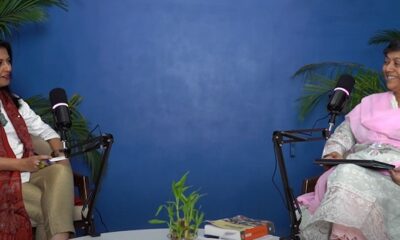
 Education3 months ago
Education3 months ago“Be the Change in a Changing World”: Anita Karwal and Anju Chazot Reflect on NEP 2020
-
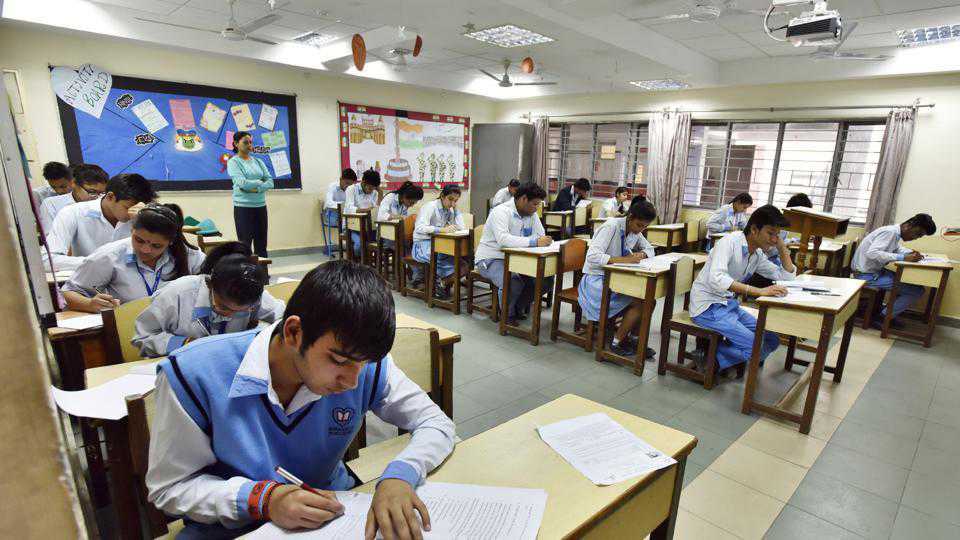
 News3 months ago
News3 months agoCBSE Warns Dummy School Students May Be Barred from Board Exams
-
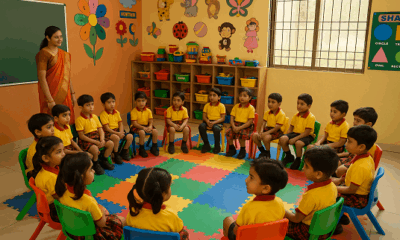
 Education2 months ago
Education2 months agoMaharashtra to Regulate Pre-Primary Education with New Law Aligned to NEP 2020
-
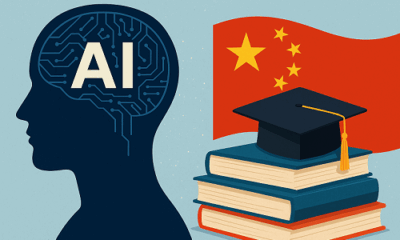
 Education3 months ago
Education3 months agoChina Embarks on Ambitious AI-Driven Education Reform to Build a ‘Strong Education Nation’ by 2035
-

 Education3 months ago
Education3 months agoMAHAJYOTI’s Book Distribution Scheme to Empower 7,000 OBC Students Preparing for JEE/NEET & MHT-CET
-
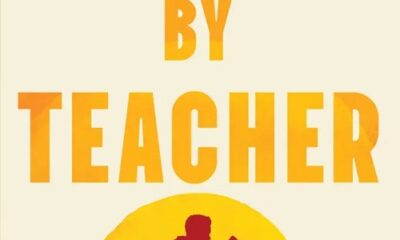
 Education2 months ago
Education2 months agoJohn King’s Book ‘Teacher By Teacher’: A Global Tribute to the Transformative Power of Education
-
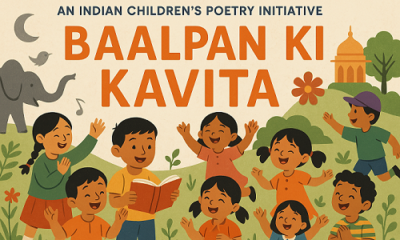
 Education3 months ago
Education3 months ago‘Baalpan ki Kavita’ Initiative Launched to Restore Indian Rhymes for Young Learners
-
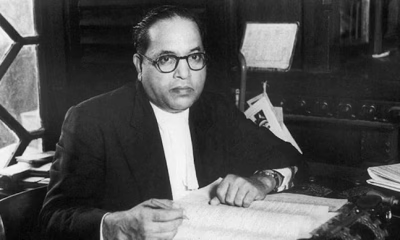
 Education3 months ago
Education3 months agoRewriting Ambedkar: Why Students Must Know the Man Beyond the Constitution





